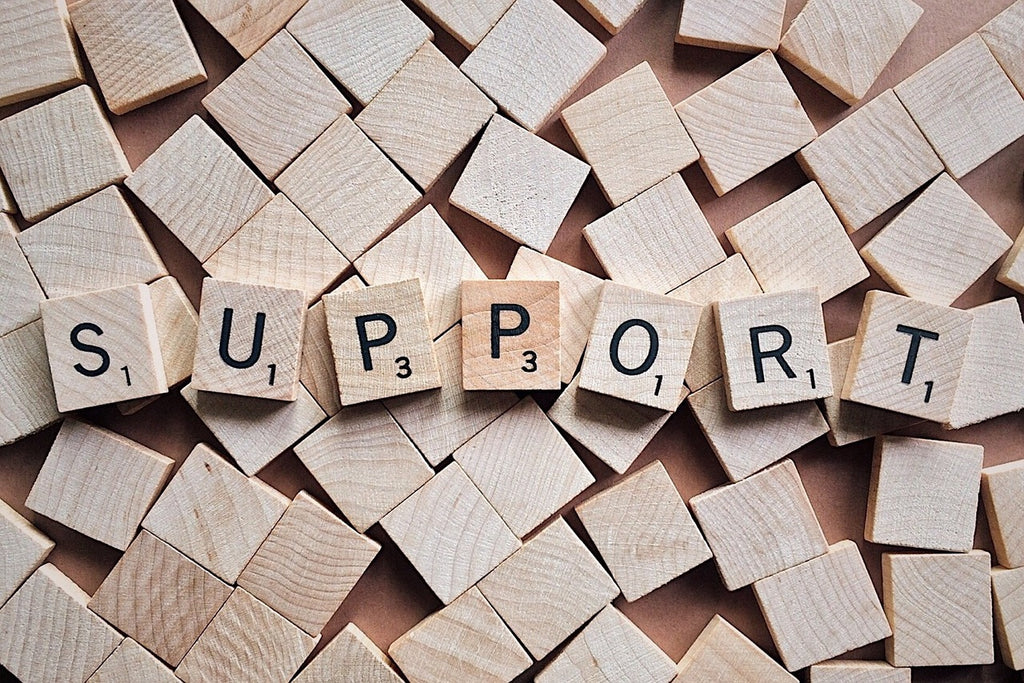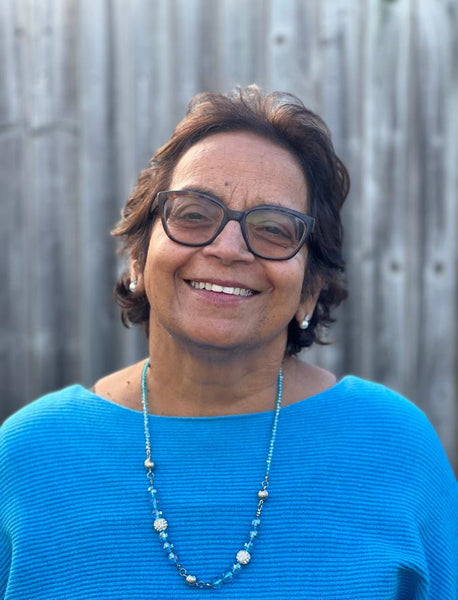I’d like to welcome grief specialist Ghulam Fernandes to the Funeral Templates blog to talk about baby loss and how to handle grief during this especially sad time.
To watch the video interview with Ghulam, scroll to the bottom of this article
What’s your background and why is baby loss support important to you?
I got into this work because I had multiple losses growing up. I didn’t have the right knowledge, tools, processes, or support and people trying to be helpful sometimes said very unhelpful things which kept me stuck in the pain of grief for many years. I lost my mum, brother, sister then father and then had three miscarriages. One was at 12 weeks, the second one was over 20 weeks and the third one was around 24 weeks and we had to have a funeral.

It’s an area that’s very misunderstood. People don’t understand why you’re grieving so much for a baby you’ve never even held in your arms. People struggle to understand why it’s affecting you so much and how to be helpful about it. Sadly we live in a culture where we are in denial about death and dying and our mortality so these subjects don’t get talked about and you often suffer more than you need to. I decided to train as a grief specialist because I don’t want other people to be stuck for as long and in as much pain as I was.
What resources are there currently available for families who’ve experienced the loss of a baby either through miscarriage, still birth or neonatal death?
I recommend the website ataloss.org as they coordinate all the current updated resources and organisations. You can search this site for special help for people who are dealing with baby loss. My own website Handling-grief.com also has free resources that can be helpful.
For friends and family members of those who’ve lost a baby, what should, or shouldn’t you do to help comfort them?
The most important thing is to focus on being a listening heart and to be led by where the person is at. Sometimes we have a lack of information and misunderstanding about what grief is or isn’t and how it affects people, so getting yourself educated about the dos and don’ts can be very helpful. I have a free report called How to support someone dealing with loss, highlighting some of the common things to avoid and the helpful things to do.

Be aware that you might have discomfort around some of these emotions so you might be tempted to come up with quick solutions or say some of the common myths like “just keep yourself busy”. It’s important not to minimise what the person’s going through because sometimes we’re quick to want to change the subject or we aren’t sure what to say so we’ll avoid the person. Practical acts of kindness can be the most helpful. Also express to the person that you really care about them but don’t know what to say or how best to support them so offer ways to help like doing the shopping, cooking or cleaning. It’s much easier to offer what you’re willing to do than to ask the person “how can I help”? If you’re really struggling with your grief, you’re not in a position to make decisions and you feel bad about imposing on people or making requests.
Also be willing to be available and to give the person space and to have the sensitivity to know which is which. We all handle things differently and everyone’s grief journey is unique. Some people withdraw for a period to try and sort themselves out so if you and others are constantly asking “are you ok” or “how can I help”, this can be too much. Rather say, “if you need time alone, that’s absolutely fine and I’m always available to just come and sit with you, you don’t have to talk or put on a brave front, we can just do something together”.
What would you like to see more of in the area of baby loss support?

I’d love to see people being prepared beforehand about what grief looks like and how to handle it if it happens. The three times I was pregnant, nobody ever talked about the possibility of miscarriage and there was no information about what that might bring up or what might be a helpful way to deal with it. It was not something spoken about. When it happened, I felt at a loss about what was normal and how I should or shouldn’t feel.
Also, something where people can share their stories so that whatever is their experience is normal and natural so if they want to cry or not cry that’s fine, it they want company or to be on their own that’s also fine. Each person knows what they need for their own journey and normalising that idea is helpful, especially if people say unhelpful things like “you can always have another one” or “at least you’ve got two sons already” as if that minimises the hopes and dreams and expectations you have for this child which are no longer there! The other source of pain can be if you’re left with feelings of regret or feelings of guilt because maybe you did something or thought something you think might have contributed to the miscarriage. Those thoughts need to be resolved in order to get over the pain of the baby loss.

What is a grief specialist and how can you help with someone who’s dealing with grief?
What I do is very different from counselling and therapy, which are based around talking. The program I offer is an educational program which teaches you the knowledge, tools and processes you need to identify what the source of your pain is and then give you processes for resolving it. The first few sessions are about understanding what grief is and how it can impact you in the short and long term. Also, understanding the misinformation and common myths that can get you stuck for years, like “just give it time”. It’s not time that’s the healer, it’s the actions you take during that time. There are more than 40 life events that can leave you with feelings of loss and grief, not just someone dying, but every time something comes to an end or there’s a change in a familiar pattern of behaviour, it will impact your heart and leave you with conflicted feelings.

Could you give a testimony from somebody who you’ve helped deal with the loss of a baby?
Sometimes people have come to me with a different presenting loss but at the beginning when we do a review of what might have impacted them, they often then say “I’ve also had a miscarriage.” So once people have learnt the knowledge, tools and processes, we work on the main presenting issue they come with but then they get a chance to work on the other relationships and sometimes that includes what happened with a baby loss.
Thank you Ghulam for sharing all your advice and experience in this area of baby loss. For more information about helping bereaved people find support, including baby loss support, visit AtaLoss.org or to arrange a free connection call with Ghulam, visit her website Handing-Grief.com




